Hey there, fellow stress warriors! Work-related stress can be a real beast, messing with your mental and physical well-being and affecting every aspect of your life. But fret not, because stress leave is here to save the day! It’s your secret weapon to recharge, recover, and find that sweet balance again.
In this exclusive guide, we’ve got all the insider knowledge on how to rock stress leave like a pro. Whether you’re an employee in need of a breather or an employer with a heart, we’ve got you covered. Let’s get this stress-busting party started!
What’s Stress Leave at Work All About?
Stress leave, stress-related leave, or medical leave for stress – whatever you call it, it’s your golden ticket to take some time off work when stress is running rampant. It’s not just a getaway; it’s a vital tool to prioritize self-care and tackle those underlying stress demons.
Now, let’s dive into the nitty-gritty and unlock the power of stress leave!
Recognizing the importance of taking stress leave
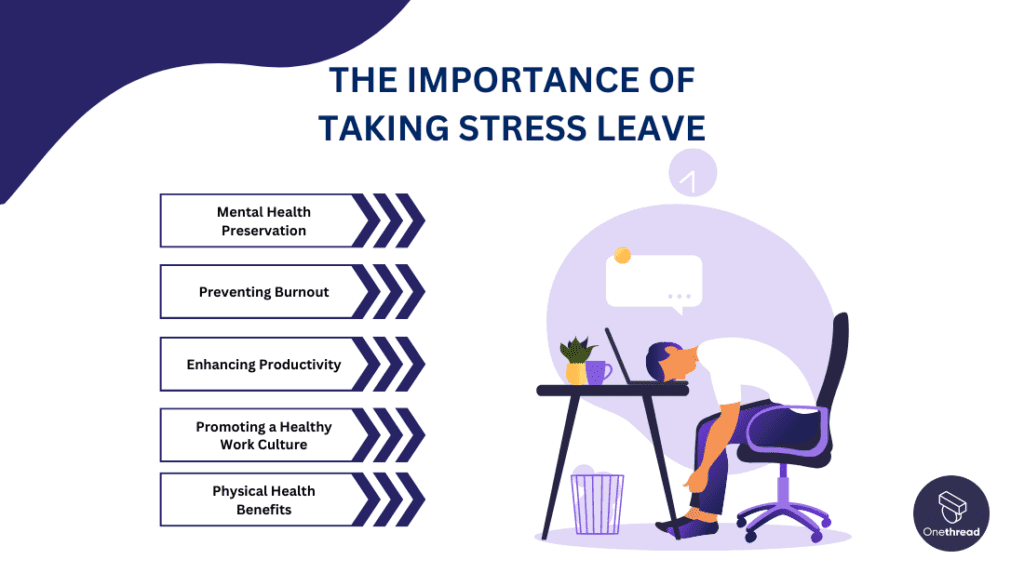
Recognizing the importance of taking stress leave is vital in maintaining mental well-being, employee productivity, and overall workplace harmony. Stress leave is a sign of self-care and an essential step in preventing burnout and fostering a supportive work environment.
- Mental Health Preservation: Taking time off to manage stress helps in maintaining mental balance and emotional well-being.
- Preventing Burnout: Stress leave can prevent the fatigue and disillusionment associated with burnout, protecting both productivity and job satisfaction.
- Enhancing Productivity: A stress-free mind is more creative and efficient, contributing positively to personal and organizational goals.
- Promoting a Healthy Work Culture: Recognizing the need for stress leave fosters empathy and understanding within a team, creating a supportive culture. In organizations where policy and state aid intersect, integrating HCBS for Medicaid beneficiaries, who require home and community-based services, can further demonstrate a commitment to employee well-being.
- Physical Health Benefits: Managing stress through dedicated time off can also have positive impacts on physical health, as stress is known to contribute to various ailments.
In sum, stress leave is not just an individual concern but a broader organizational responsibility that recognizes the human element in the workforce and strives for a healthier, more compassionate workplace.
How Work-Related Stress Connects Mental Health
Work-related stress can affect your mental health significantly, leading to various negative consequences. High levels of stress can manifest in symptoms like anxiety, irritability, difficulty concentrating, and decreased motivation.
Recognizing the correlation between work-related stress and mental health is essential for understanding when stress leave becomes crucial for your self-care.
Common Signs and Symptoms of Stress at Work
Stress can manifest in various ways, and recognizing its signs is crucial in understanding when stress leaves may be necessary. Common signs of work-related stress include
Category | Signs Name |
|
|
|
|
Causes and Triggers of Work-Related Stress
Work-related stress can stem from a variety of factors, including:
- Excessive workload or unrealistic deadlines
- Lack of control or autonomy in decision-making
- Poor communication or conflicts within the workplace
- Job insecurity or fear of job loss
- Work-life imbalance or a lack of support from supervisors
Identifying the specific causes and triggers of stress can help you address them effectively and make informed decisions about requesting stress leave.
How to Request Stress Leave from Work: A Step-by-step guide
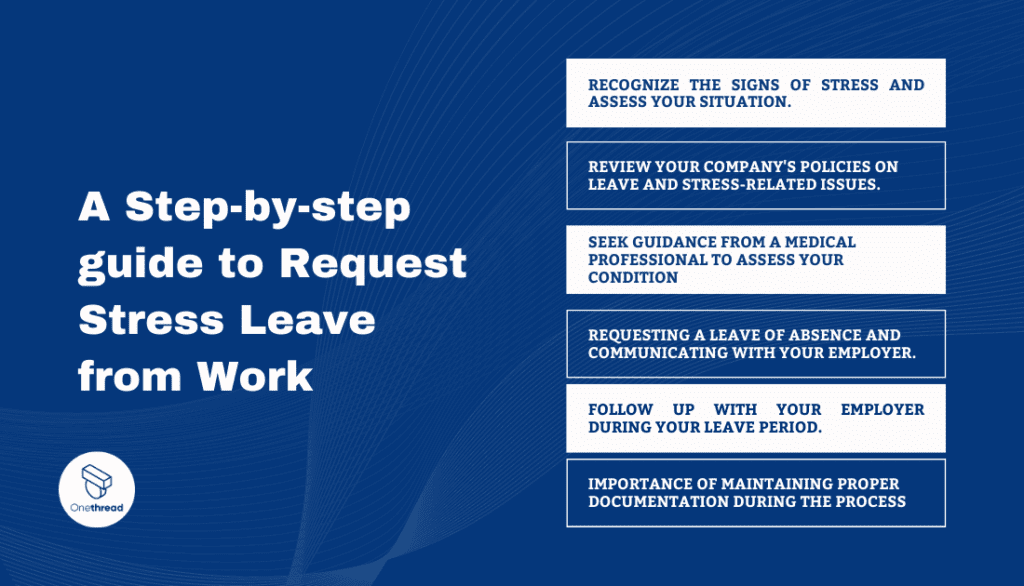
Recognize the signs of stress and assess your situation.
Pay attention to the signs of work-related stress and evaluate how it’s impacting your well-being. Assess whether stress leave is the right option for you at this time.
Review your company’s policies on leave and stress-related issues.
Familiarize yourself with your company’s leave policies, including stress or medical leave. Understand the procedures and requirements for requesting time off.
Seek guidance from a medical professional to assess your condition.
Consult with a healthcare provider, such as your primary care physician or a mental health professional, to evaluate your stress levels and their impact on your health. They can provide a diagnosis or recommendation for stress leave if appropriate.
Requesting a leave of absence and communicating with your employer.
Approach your employer or human resources department to request stress leave formally. Clearly communicate the reasons for your request, including the effect of work-related stress on your well-being.
Follow up with your employer during your leave period.
Maintain open communication with your employer while on stress leave. Provide updates on your progress, if necessary, and address any questions or concerns they may have.
Importance of maintaining proper documentation during the process
Keep detailed records of your communication with your employer, medical documentation, and any other relevant information. Documentation can support your stress leave request and ensure a smooth process.
Ensuring Approval for Stress Leave
Tips for increasing the likelihood of stress leave approval
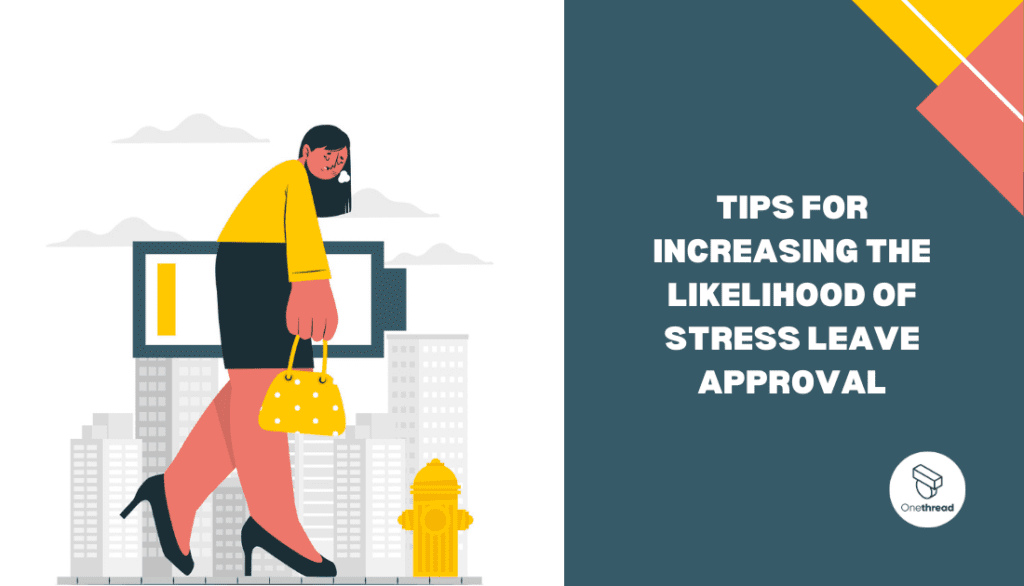
- Provide comprehensive and specific information about the consequences of work-related stress on your health and well-being.
- Highlight any work-related policies or practices that contribute to your stress levels and suggest potential solutions.
- Collaborate with your healthcare provider to gather supporting documentation, including medical reports or recommendations.
- Maintain professionalism and open communication with your employer throughout the process.
- Understand your legal rights and protections regarding stress leave, seeking legal advice if necessary.
Understanding the legal aspects of stress leave and your rights
- Familiarize yourself with federal and state laws that protect employees’ rights to take stress leave, such as the Family and Medical Leave Act (FMLA) in the United States.
- Educate yourself about your company’s policies and procedures related to stress leave and medical leave.
- Consult with an employment attorney to understand your specific rights and legal protections.
How to discuss stress leave with HR or your supervisor effectively
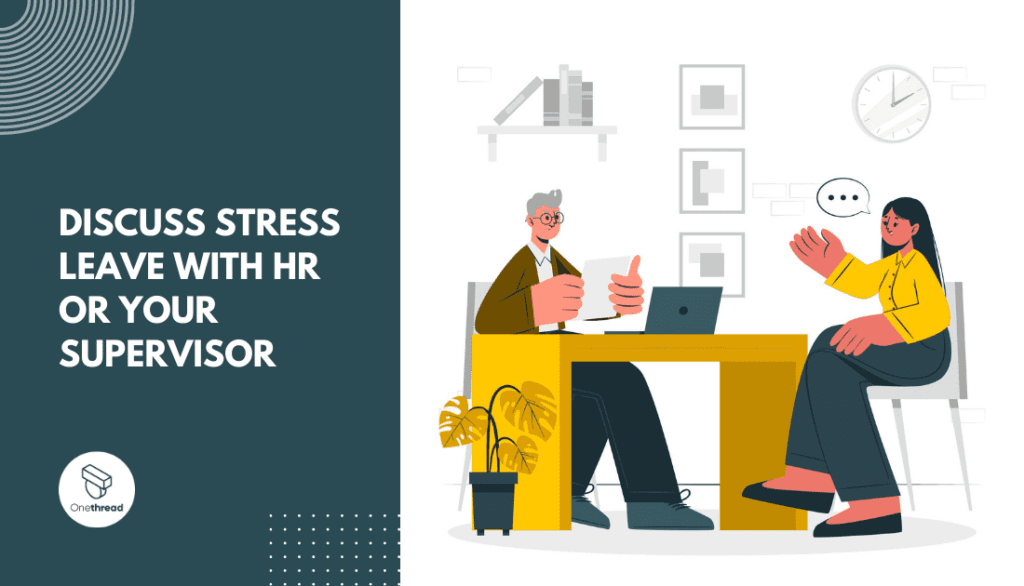
- Schedule a meeting with your HR representative or supervisor to discuss your need for stress leave.
- Clearly communicate the effect of work-related stress on your well-being and job performance.
- Present any supporting documentation from healthcare professionals to reinforce your request.
- Emphasize your commitment to addressing the underlying causes of stress and your intention to return to work in a healthier state.
Managing Stress Leave
Utilizing stress leave effectively for recovery and self-care
- Prioritize self-care activities that promote relaxation, such as practicing mindfulness, engaging in hobbies, or spending time in nature.
- Establish a routine that includes physical exercise, healthy eating, and sufficient sleep to support your overall well-being.
- Explore stress management techniques like deep breathing exercises, meditation, or journaling.
Activities and practices to promote relaxation and reduce stress during your leave
Activities | Benefits |
Yoga or tai chi | Reduces stress and promotes mindfulness |
Spending time in nature | Enhances mood and reduces anxiety |
Listening to calming music | Eases tension and promotes relaxation |
Engaging in creative outlets | Provides a sense of fulfillment and joy |
Seeking support from mental health professionals, if necessary
- Consider reaching out to a mental health professional, such as a therapist or counselor, to discuss and address the underlying causes of work-related stress.
- Therapy can provide you with valuable coping strategies and support during your stress leave and beyond.
Seeking Support from Mental Health Professionals. If you’re navigating stress leave, accessing support is crucial. Consider reaching out to mental health providers online, who can guide you through your challenges and help establish coping strategies tailored to your needs.
Strategies for communicating with colleagues and managing work-related communication during leave
- Clearly communicate your availability and boundaries to colleagues during your leave period.
- Consider setting up an email auto-reply or voicemail message that informs others about your absence and provides alternative contacts, if applicable.
- If urgent matters arise during your leave, determine a plan for handling them in collaboration with your employer or colleagues.
Returning to Work Stress-Free
Tips for a smooth transition back to Work after Stressful Leave
- Initiate a meeting with your employer or supervisor before your return to discuss any necessary adjustments or accommodations.
- Communicate your needs and concerns openly, such as a reduced workload or modified responsibilities during your initial reintegration.
- Gradually increase your work hours or workload to ease back into your regular routine.
Communicating with your employer and colleagues about your return
- Notify your employer and colleagues in advance about your return date and any changes in your availability or work arrangements.
- Express your appreciation for the support you received during your stressful leave and reinforce your commitment to maintaining a healthy work-life balance.
Techniques for managing stress and maintaining a healthy work-life balance
- Set realistic expectations for yourself and prioritize self-care even after returning to work.
- Practice stress management techniques, such as mindfulness or breathing exercises, during work hours.
- Establish boundaries to prevent work-related stress from impacting your personal life.
Employers’ Role in Reducing Workplace Stress
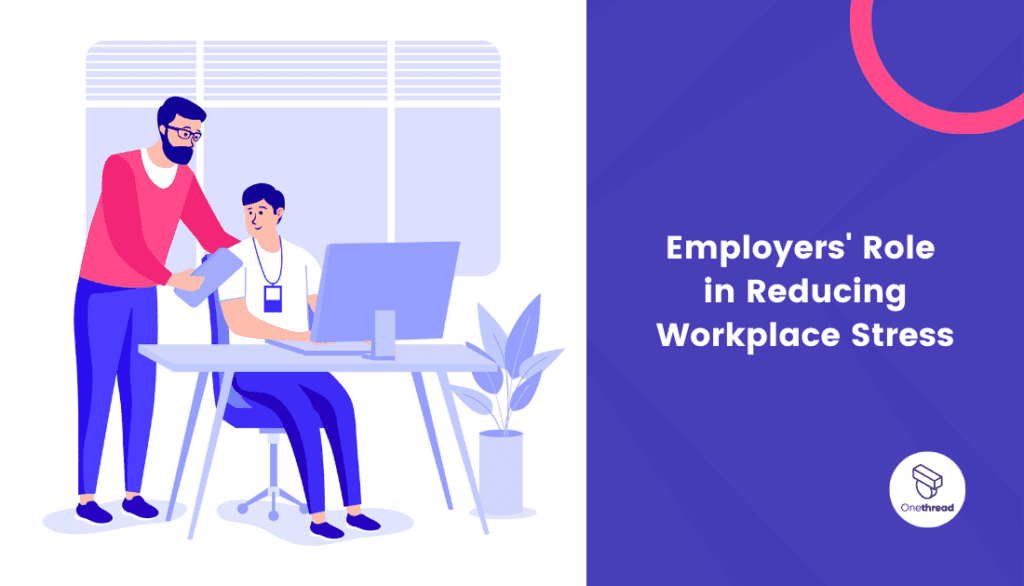
The significance of employers in addressing work-related stress
- Employers play a crucial role in creating a supportive work environment that prioritizes employee well-being.
- Recognize that reducing work-related stress benefits both employees and the organization as a whole.
Strategies for creating a supportive and stress-free work environment
- Promote open communication and encourage employees to share their concerns and stressors.
- Provide resources and training on stress management, resilience, and work-life balance.
- Establish policies that support work-life integration, flexible work arrangements, and regular breaks.
Income Protection and Stress Leave
Understanding Income Protection Benefits
- Income protection benefits, also known as disability benefits or income replacement, provide financial support to individuals unable to work due to stress-related conditions.
- Research your company’s income protection policies and whether stress leave qualifies for coverage.
Considering Income Protection Insurance
- Income protection insurance provides a safety net by offering income replacement in the event of extended periods of stress leave.
- Evaluate the options available and consider the coverage that aligns with your needs and circumstances.
Exploring Stress Leave Pay
- Investigate whether your employer provides paid stress leave or falls under other leave categories, such as sick or vacation leave.
- Consult your company’s policies or discuss them with your HR representative.
Does Stress Leave Make You Look Incompetent?
Is stress considered a disability? It’s a question that many individuals grappling with work-related stress find themselves asking. While stress itself is not classified as a disability, it can lead to mental health conditions that are recognized as disabilities under certain circumstances.
In order for stress leave to be considered as incompetence, stress must significantly impact your ability to carry out major life activities, such as working, concentrating, or maintaining relationships.
This means that if your work-related stress has reached the point where it is debilitating and severely affecting your overall functioning, you may be eligible for protection under disability laws.
However, remember that each situation is unique, and determining whether your stress qualifies as a disability will depend on various factors such as symptoms’ severity and duration.
It’s important to consult with medical professionals and employment lawyers who can provide guidance based on your specific circumstances.
Stress Leave and Legal Considerations
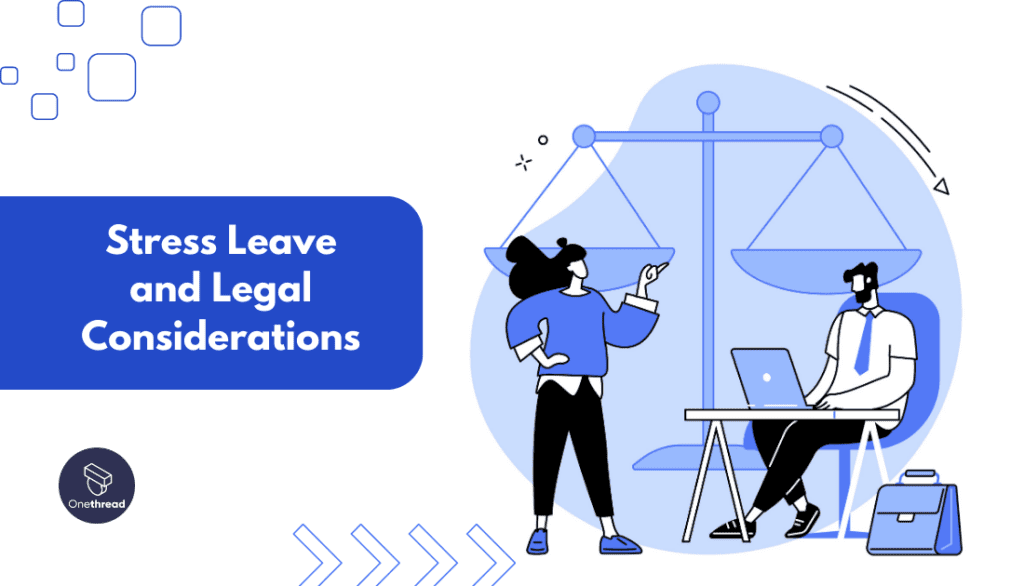
Exploring the legal aspects of stress leave, including disability considerations
- Familiarize yourself with relevant laws and regulations that protect employees’ rights to take stress leave, such as the Americans with Disabilities Act (ADA) in the United States.
- Understand the requirements for stress leave to be considered a disability and the potential accommodations available to you.
Understanding income protection and workers’ compensation for stress-related cases
- Research workers’ compensation laws in your jurisdiction to determine if stress-related cases are covered.
- Consult with a legal professional to explore your options and eligibility for workers’ compensation benefits related to stress leave.
Specific regulations and laws regarding stress leave (e.g., stress leave in California)
- Research the specific regulations and laws related to stress leave in your jurisdiction, such as stress leave laws in California.
- Familiarize yourself with any additional requirements or protections that may apply to your situation.
Conclusion
Taking stress leave is vital in prioritizing your well-being and addressing work-related stress. You can regain balance and enhance your overall productivity by understanding the signs of stress, requesting leave effectively, managing your time off, and returning to work stress-free.
Employers also play a crucial role in creating a supportive work environment that reduces workplace stress.
If you’re struggling with work-related stress, take the first step toward a healthier work life balance.
FAQs
Is stress a valid reason to take time off work?
Yes, work-related stress can be a valid reason to take time off work, particularly when it starts to affect your mental and physical health.
How do I discuss stress leave with HR or my supervisor?
Approach the conversation openly and honestly, sharing the impact of work-related stress on your well-being and job performance. Provide supporting documentation if available.
What are the signs of work-related stress?
Signs of work-related stress can include emotional symptoms like anxiety and irritability, as well as physical symptoms such as fatigue and headaches.
Can stress leave be considered a disability?
In certain cases, stress leave may be considered a disability under relevant laws and regulations. Consult with a legal professional to understand the specific criteria and accommodations.
How long can stress leave typically last?
The duration of stress leave can vary depending on the individual’s circumstances and needs. It can range from a few days to several weeks or more, depending on the severity of the stress and the recommended treatment plan.
Do I receive full pay during stress leave?
The payment during stress leave depends on various factors, including your company’s policies, applicable laws, and the type of leave you are taking. Review your company’s policies or consult with HR to understand the specifics of your situation.
